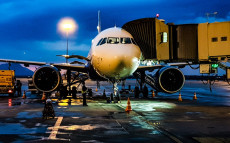- pathfindersAI
- Job Profile
Aircraft Service Attendants
Summary
Aircraft Service Attendants: Guardians of In-Flight Comfort and Safety
In the bustling world of aviation, Aircraft Service Attendants play an indispensable role in ensuring the safety and satisfaction of passengers. These dedicated professionals serve as the backbone of in-flight customer service, providing not only efficiency and practicality but also a touch of warmth and hospitality that can turn a routine flight into a pleasurable experience. This essay explores the multifaceted responsibilities, necessary skills, educational pathways, and career prospects of becoming an Aircraft Service Attendant.
What They Do
Aircraft Service Attendants, commonly known as flight attendants, are responsible for a myriad of tasks that collectively ensure the safety, comfort, and well-being of airline passengers. From greeting passengers as they board the aircraft, to demonstrating safety procedures, to providing food and beverages during the flight, attendants are the face of the airline. They must be ready to handle any in-flight emergencies, ensuring that they can promptly and efficiently respond to medical issues, turbulence, or security threats. The role is as dynamic as it is crucial, encompassing both mundane and critical tasks that form the foundation of a successful passenger experience.
Job Responsibilities
The responsibilities of Aircraft Service Attendants begin long before the passengers board the flight. Pre-flight duties include checking that safety equipment is in working order, ensuring the aircraft is clean and well-stocked with supplies, and reviewing passenger manifests for special needs. Once passengers are on board, attendants assist with seating, luggage storage, and conduct safety demonstrations. During the flight, they serve meals, distribute refreshments, and address passenger inquiries and concerns. If any issue arises, whether it be a medical emergency or a disruptive passenger, attendants must manage the situation with composure and professionalism. Post-flight, attendants account for in-flight sales, provide feedback on any irregularities, and prepare the cabin for the next set of passengers.
Essential Skills
To excel as an Aircraft Service Attendant, several core skills are essential. Communication and interpersonal skills are paramount, as attendants must interact with a wide variety of passengers and crew members professionally and courteously. Problem-solving and critical thinking abilities are crucial for handling unexpected situations swiftly and effectively. Physical stamina and fitness are also necessary, given the long hours and physical demands of the job. Additionally, flexibility in scheduling, including working nights, weekends, and holidays, is a prerequisite. Lastly, cultural sensitivity and language skills can be beneficial, particularly for those attending to international flights, where understanding and respecting cultural differences can enhance passenger satisfaction.
Educational Pathways
There is no single educational pathway to becoming an Aircraft Service Attendant, but some foundational steps can help aspiring attendants prepare for this career. A high school diploma or equivalent is the minimum educational requirement. Post-secondary education in hospitality, travel, or tourism may provide a competitive edge. Many airlines provide specialized training programs that cover safety procedures, emergency protocols, and customer service skills. Obtaining certifications in first aid and CPR can also be advantageous. For those looking to stand out, knowledge of a second language is highly valued in this global industry.
Career Prospects
The career prospects for Aircraft Service Attendants are promising, given the continual growth of the global aviation industry. According to industry reports, there is a steady demand for qualified attendants, particularly as airlines expand their routes and increase flight frequencies. Career progression is also viable; attendants can advance to senior positions, supervisory roles, or even transition into airline management or training departments. While the job can be physically demanding and sometimes stressful, the opportunity to travel extensively and meet a diverse array of people offers unique personal and professional enrichment.
Conclusion
Aircraft Service Attendants play a vital role in the aviation industry by ensuring passenger comfort and safety. Their responsibilities are diverse, requiring a blend of customer service finesse, problem-solving aptitude, and physical endurance. While the educational requirements are minimally stringent, specialized training and additional certifications can significantly boost career prospects. With the aviation industry continuing to grow, the role of the Aircraft Service Attendant remains not only essential but also filled with opportunities for those ready to embark on this exciting and dynamic career path. Ultimately, Aircraft Service Attendants are the guardians of the sky, making every flight a safe and enjoyable journey for passengers around the world.
Video
Compensation
| State | Median Salary | Median Hourly | Positions |
|---|---|---|---|
| AL | 35,640 | 17.13 | 290 |
| AK | 41,050 | 19.74 | 210 |
| AZ | 38,020 | 18.28 | 380 |
| AR | 35,390 | 17.01 | 270 |
| CA | 39,250 | 18.87 | 2,330 |
| CO | 43,510 | 20.92 | 1,290 |
| CT | 36,300 | 17.45 | 130 |
| FL | 36,910 | 17.75 | 3,450 |
| GA | 39,880 | 19.17 | 540 |
| HI | 46,620 | 22.41 | 280 |
| IL | 35,990 | 17.31 | 310 |
| IN | 38,920 | 18.71 | 330 |
| IA | 36,620 | 17.60 | 150 |
| KS | 33,800 | 16.25 | 170 |
| KY | 52,770 | 25.37 | 150 |
| LA | 38,830 | 18.67 | 250 |
| ME | 38,730 | 18.62 | 180 |
| MD | 45,910 | 22.07 | 150 |
| MA | 42,140 | 20.26 | 950 |
| MI | 37,870 | 18.21 | 930 |
| MN | 39,050 | 18.77 | 830 |
| MS | 33,570 | 16.14 | 110 |
| MO | 34,680 | 16.68 | 290 |
| MT | 40,430 | 19.44 | 100 |
| NE | 34,660 | 16.66 | 80 |
| NV | 40,810 | 19.62 | 530 |
| NH | 37,770 | 18.16 | 40 |
| NJ | 45,810 | 22.02 | 610 |
| NY | 39,110 | 18.80 | 1,530 |
| NC | 34,580 | 16.63 | 590 |
| ND | 46,410 | 22.31 | 70 |
| OH | 37,140 | 17.86 | 740 |
| OK | 32,020 | 15.39 | 140 |
| OR | 44,960 | 21.62 | 460 |
| PA | 39,370 | 18.93 | 520 |
| SD | 35,980 | 17.30 | 60 |
| TN | 53,510 | 25.73 | 1,050 |
| TX | 37,710 | 18.13 | 2,410 |
| UT | 38,850 | 18.68 | 290 |
| VA | 37,690 | 18.12 | 780 |
| WA | 49,040 | 23.58 | 330 |
| WI | 34,800 | 16.73 | 110 |
| WY | 36,240 | 17.42 | 80 |
Similar Occupations
In this area you will find other occupations that are close to the one you were viewing in tasks, knowledge and work environment. If the primary job profile you are viewing isn't quite to your liking, take a look around and see what else is available.
Basic and Premium Accounts have more alternative occupations available than the Free account.

Aircraft Cargo Handling Supervisors - 53-1041.00
Aircraft Cargo Handling Supervisors oversee the loading, unloading, and securement of cargo on aircraft, ensuring adherence to weight and balance specifications and safety protocols. They coordinate with ground crew and logistics personnel to optimize efficiency and compliance with aviation regulations.
-
$58,920/yr
Median Pay -
9,020
Number of Jobs

Aircraft Mechanics and Service Technicians - 49-3011.00
Aircraft Mechanics and Service Technicians are responsible for diagnosing, repairing, and maintaining the structural, mechanical, and electronic systems of airplanes and helicopters to ensure they operate safely and efficiently. They perform routine inspections, troubleshoot issues, and replace or repair components to meet stringent safety standards and regulatory requirements.
-
$75,020/yr
Median Pay -
137,630
Number of Jobs